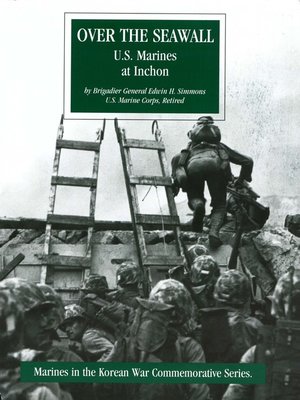Over the Seawall
ebook ∣ U.S. Marines At Inchon [Illustrated Edition] · Marines In the Korean War Commemorative Series
By Brigadier General Edwin H. Simmons

Sign up to save your library
With an OverDrive account, you can save your favorite libraries for at-a-glance information about availability. Find out more about OverDrive accounts.
Find this title in Libby, the library reading app by OverDrive.



Search for a digital library with this title
Title found at these libraries:
| Library Name | Distance |
|---|---|
| Loading... |
Includes more than 40 maps, plans and illustrations. This volume in the official History of the Marine Corps chronicles the invasion by United States Marines at Inchon in the initial stages of the Korean War. The Battle of Inchon was an amphibious invasion and battle of the Korean War that resulted in a decisive victory and strategic reversal in favor of the United Nations. The operation involved some 75,000 troops and 261 naval vessels, and led to the recapture of the South Korea capital Seoul two weeks later. The code name for the operation was Operation Chromite. The battle began on 15 September 1950 and ended on 19 September. Through a surprise amphibious assault far from the Pusan Perimeter that UN and South Korean forces were desperately defending, the largely undefended city of Incheon was secured after being bombed by UN forces. The battle ended a string of victories by the invading North Korean People's Army (NKPA). The subsequent UN recapture of Seoul partially severed NKPA's supply lines in South Korea. The majority of United Nations ground forces involved were U.S. Marines, commanded by General of the Army Douglas MacArthur of the United States Army. MacArthur was the driving force behind the operation, overcoming the strong misgivings of more cautious generals to a risky assault over extremely unfavorable terrain.







